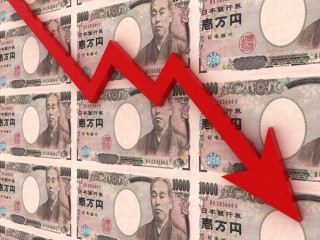Loading
Search
▼ Japan Real Wages Down 1.4% In May, 26th Monthly Fall Despite Hikes
- Category:Other
Japan's real wages in May fell 1.4 percent from a year earlier, declining for a record 26th straight month, as the sharpest base wage growth in 31 years was offset by inflation, government figures showed Monday.
The drop in May was larger than a revised 1.2 percent fall in April, with higher material costs and a weakening yen pushing up import costs, data from the Ministry of Health, Labor and Welfare showed.
The downward pressure continued even as the Japanese Trade Union Confederation said last Wednesday that Japanese companies agreed to raise wages by an average of 5.1 percent at this year's spring wage talks, offering a more than 5 percent increase for the first time in 33 years.
The impact of pay increases was seen in nominal wages, with average base pay up 2.5 percent at 263,539 yen ($1,600), the fastest rise since January 1993.
Analysts said the latest data indicated the effect of wage hikes was becoming apparent.
Koya Miyamae, a senior economist at SMBC Nikko Securities Inc., said he expected the impact of the rises in base pay from this year's wage negotiations to become visible around May to July.
"It appears that a ripple effect may have begun," he said.
But a labor ministry official was less confident that real wages would enter positive territory, with growth in the consumer price index, which is used to calculate real wages, remaining well above 2 percent due to higher utility and food costs.
"Nominal pay looks set to increase in the future due to the effects of salary hikes, but without an easing off of price rises it's hard to see real wages turning positive," the official said at a briefing.
Until real pay turns positive, consumer spending will remain tepid despite a series of government measures to address price increases, economists say. The Bank of Japan is aiming to foster a virtuous cycle of inflation and rising wages under its monetary easing policy.
Nominal wages, or the average total monthly cash earnings per worker including base and overtime pay, were up 1.9 percent at 297,151 yen.
It was the 29th consecutive month of increase and the biggest gain since June 2023, ministry data showed.
Average monthly nominal wages for full-time workers were up 2.1 percent at 378,803 yen, while part-time workers saw monthly pay increase 3.2 percent to 108,511 yen.
Total working hours were up 1.2 percent at 137.1.
By industry, monthly pay in the construction sector saw the biggest rise of 7.2 percent, while "compound services" such as postal services saw the sharpest fall of 6.3 percent.
© KYODO
The drop in May was larger than a revised 1.2 percent fall in April, with higher material costs and a weakening yen pushing up import costs, data from the Ministry of Health, Labor and Welfare showed.
The downward pressure continued even as the Japanese Trade Union Confederation said last Wednesday that Japanese companies agreed to raise wages by an average of 5.1 percent at this year's spring wage talks, offering a more than 5 percent increase for the first time in 33 years.
The impact of pay increases was seen in nominal wages, with average base pay up 2.5 percent at 263,539 yen ($1,600), the fastest rise since January 1993.
Analysts said the latest data indicated the effect of wage hikes was becoming apparent.
Koya Miyamae, a senior economist at SMBC Nikko Securities Inc., said he expected the impact of the rises in base pay from this year's wage negotiations to become visible around May to July.
"It appears that a ripple effect may have begun," he said.
But a labor ministry official was less confident that real wages would enter positive territory, with growth in the consumer price index, which is used to calculate real wages, remaining well above 2 percent due to higher utility and food costs.
"Nominal pay looks set to increase in the future due to the effects of salary hikes, but without an easing off of price rises it's hard to see real wages turning positive," the official said at a briefing.
Until real pay turns positive, consumer spending will remain tepid despite a series of government measures to address price increases, economists say. The Bank of Japan is aiming to foster a virtuous cycle of inflation and rising wages under its monetary easing policy.
Nominal wages, or the average total monthly cash earnings per worker including base and overtime pay, were up 1.9 percent at 297,151 yen.
It was the 29th consecutive month of increase and the biggest gain since June 2023, ministry data showed.
Average monthly nominal wages for full-time workers were up 2.1 percent at 378,803 yen, while part-time workers saw monthly pay increase 3.2 percent to 108,511 yen.
Total working hours were up 1.2 percent at 137.1.
By industry, monthly pay in the construction sector saw the biggest rise of 7.2 percent, while "compound services" such as postal services saw the sharpest fall of 6.3 percent.
© KYODO
- July 8, 2024
- Comment (0)
- Trackback(0)


